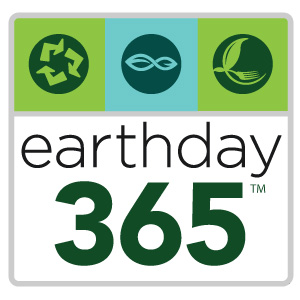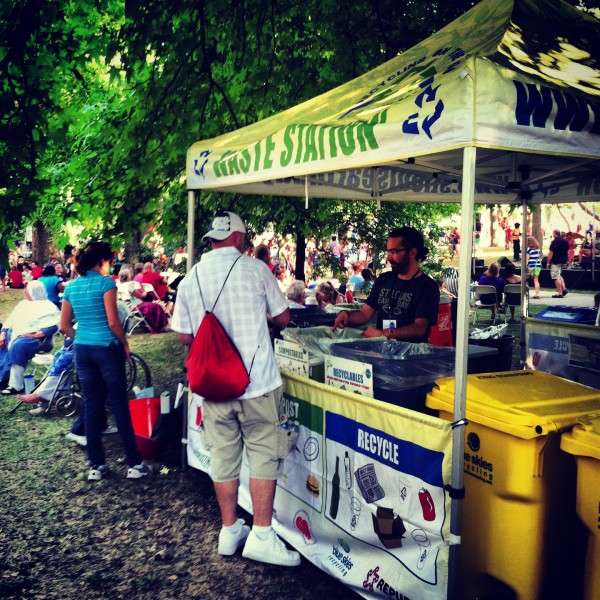Zero Waste Webinar
Join Bob Henkel, our new ROG Program Manager, and 5 other presenters for the 2014 Zero Waste Events Webinar sponsored by GIVE-Green Initiatives for Venues and Events. From brochures and logistics to event food and free giveaways, a vast amount of material and energy is generated to produce an event. What can we do to reduce the negative environmental impact of events? (read on below)
Friday, March 21, 2014
Time: 10:00 AM – 11:30 AM PDT
www.
Space is limited – Reserve your webinar seat now: https://www1.gotomeeting.com/
In the vast majority of municipalities in the US, you can probably find a recycling drop off area or even curbside pickup. The infrastructure is available and yet as a nation we only achieve a 30% diversion rate in the recovery of these valuable resources. Municipal composting infrastructure for food scraps, however, is almost non-existent although organics account for 14% of the nation’s landfill waste (see epa.gov). Only about 3% of the nation has any composting infrastructure for food scraps. St. Louis, with the help of our partners: Blue Skies Recycling and St. Louis Composting, is fortunate to be a part of the 3%!
Without infrastructure like hauling and commercial composting facilities, organics are sent to the landfill which is a problem. Landfills, which were never very well thought out from the beginning, are not designed to biodegrade anything (see article from bpiworld.com). When organics enter a landfill, they create methane gas when they breakdown – a gas that is more than 20 times more damaging than carbon dioxide as a greenhouse gas in the atmosphere (see epa.gov). If the liner of a sanitary landfill tears, ruptures or leaks (which is not uncommon but often unnoticed), those organics create a toxic leachate that can enter the groundwater and become a localized health risk (reference article).
“Zero Waste” is used to describe a waste management approach which achieves diverting more than 90% of all the waste generated at an event from the landfill – meaning 90% of the waste is able to be collected, and is collected, as recyclable or compostable. This also means that no waste is sent to an incinerator, even if it is used to create energy.
To achieve this level of diversion requires a commitment from all stakeholders but what really makes a difference for high results is the management of food vendors/catering and in particular, the ability to compost. Republic Services, a sponsor of our Recycling On the Go program, offers single stream recycling which achieves about 30-50% waste diversion from an event. Being able to compost organic food scraps and certified compostable service ware will help an event achieve a much greater rate of diversion, closer to over 70%. There are a lot of factors, like how much food is served at the event, what kind of service ware is sourced by vendors or caterers and how an event is set up, to name a few; and that’s why planning is important.
Presenting on this webinar will be the following:
Tina Gonterman, City of San Jose: Collaborating with a University on an Interactive Mobile Friendly Mapping Tool
Bob Henkel, St. Louis Earth Day: Partnering with Communities to Achieve Zero Waste Events
Julie Bryant, San Francisco Department of Environment: San Francisco’s Bottled Water Policies
Teresa Bradley, Revolutionary Green Solutions: Using Event Waste Diversion Numbers to Track GHG Emissions
Tomer Shapira, San Francisco Conservation Corps: Zero Waste Events and Job Training Programs: Making a Positive Impact with a Local Community
Bob Hollis, The Mobius Network: Electronic Communications for Outreach to Vendors, Exhibitors, and Guests


